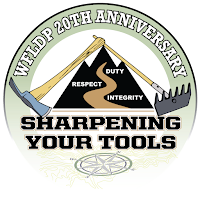The 1994 fire season was a pivotal year in United States wildland fire operations. Thirty 38 wildland firefighters lost their lives in job-related activities. Fourteen of those deaths occurred on the South Canyon fire. This tragedy became a catalyst for change.
Learn more about the South Canyon fire from survivors themselves. This two-part video (Part 1 and Part 2) was produced by survivor Eric Hipke for the 20th anniversary. Join the Redding IHC and survivors in interviews and during the South Canyon Staff Ride.
Check out another interview of survivors in the National Fallen Firefighters Foundation's Wildland Firefighting: Everyone Goes Home series.
"Despite a great deal of attention to safety, the same unsolved problems and underlying factors were reoccurring and, unfortunately, adding to an already long legacy of tragedy fires. Following powerful soul-searching, multiple agency investigations, and special conferences on safety in response to the South Canyon Fire, a new idea arose. It became clear that the usual causal factors sought in fatality fire investigations were not achieving their objectives for change." (Wildland Fire Lessons Learned Center)
Following this tragedy, members from all levels and aspects of the wildland fire service came together in May 1995 for a two-day National Firefighter Safety Workshop.
Following the workshop, the five federal wildland firefighting agencies committed to digging deeper into the wildland firefighter safety problem. The agencies hired the TriData Corporation to delve into the service's safety problem in what resulted in a four-phase Wildland Fire Safety Awareness Study (also called the TriData Study).
- Phase I − Identification of Existing Culture
- Phase II − Formulate the Desired Organizational Culture/Safety Environment
- Phase III − Develop an Implementation Plan
- Phase IV − Assisting, Monitoring and Evaluating Implementation.
We will dig deeper into the study in future blogs. Be sure to check back!


No comments:
Post a Comment
********
The WFLDP seeks to build and support an online community in which wildland fire professionals can interact.
We invite respectful discussion; however, the realities of online culture is such that anonymous posts and posts from children under the age of 13 are not accepted.
All comments are monitored by our editorial staff for appropriateness in meeting the mission of the WFLDP prior to posting to the blog. We do not discriminate against any views, but we reserve the right not to post comments.
Individuals posting comments are fully responsible for everything that they submit.
Comments submitted after hours and on holidays/weekends will be reviewed as early as possible the next business day.
Our complete blog policy can be found at http://www.fireleadership.gov/committee/reports/Blog_Policy_Jan2010.pdf.
A yellow box will appear after you submit your comment notifying you that your comment will be reviewed.